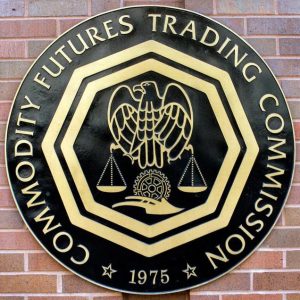The Securities and Exchange Commission and the Commodities Futures Trading Commission ratcheted up their joint effort to provide guidance on oversight over virtual currency.
Last week, after the CFTC announced twin findings against virtual currency fraudsters the CFTC and SEC issued this joint statement.

“When market participants engage in fraud under the guise of offering digital instruments – whether characterized as virtual currencies, coins, tokens, or the like – the SEC and the CFTC will look beyond form, examine the substance of the activity and prosecute violations of the federal securities and commodities laws.
“The Divisions of Enforcement for the SEC and CFTC will continue to address violations and to bring actions to stop and prevent fraud in the offer and sale of digital instruments.”
On January 25, the heads of the two agencies published an op-ed in the Wall Street Journal entitled Regulators Are Looking at Cryptocurrency.
“Distributed ledger technology, or DLT, is the advancement that underpins an array of new financial products, including cryptocurrencies and digital payment services. Many have identified DLT as the next great driver of economic efficiency. Some have even compared it to productivity-driving innovations such as the steam engine and personal computer.
“Our task, as market regulators, is to set and enforce rules that foster innovation while promoting market integrity and confidence. In recent months, we have seen a wide range of market participants, including retail investors, seeking to invest in DLT initiatives, including through cryptocurrencies and so-called ICOs—initial coin offerings. Experience tells us that while some market participants may make fortunes, the risks to all investors are high. Caution is merited.
“A key issue before market regulators is whether our historic approach to the regulation of currency transactions is appropriate for the cryptocurrency markets. Check-cashing and money-transmission services that operate in the U.S. are primarily state-regulated. Many of the internet-based cryptocurrency trading platforms have registered as payment services and are not subject to direct oversight by the SEC or the CFTC. We would support policy efforts to revisit these frameworks and ensure they are effective and efficient for the digital era.
“The CFTC and SEC, along with other federal and state regulators and criminal authorities, will continue to work together to bring transparency and integrity to these markets and, importantly, to deter and prosecute fraud and abuse. These markets are new, evolving, and international. As such they require us to be nimble and forward-looking; coordinated with our state, federal and international colleagues; and engaged with important stakeholders, including Congress.”
Regulating virtual currency continues to be an evolving process. The CFTC has stepped up its efforts because that agency is responsible for derivatives and virtual currency derivatives have become chic over the last six months to one year.
But regulating virtual currency remains murky.
Terms like distributed ledger technology and initial coin offering are recent creations and need a whole new regulatory framework and perspective to regulate properly.
The two agencies appear to be trying to create equivalence between the two on this new product; when in October, the CFTC listed ICO’s as commodities, the CFTC noted in its press release that their view was in line with the SEC.
“There is no inconsistency between the SEC’s analysis and the CFTC’s determination that virtual currencies are commodities and that virtual tokens may be commodities or derivatives contracts depending on the particular facts and circumstances,”
“The CFTC looks beyond form and considers the actual substance and purpose of an activity when applying the federal commodities laws and CFTC regulations.”








